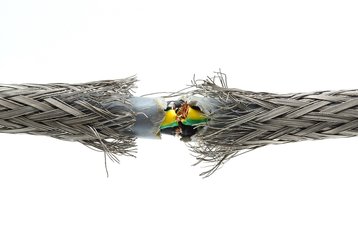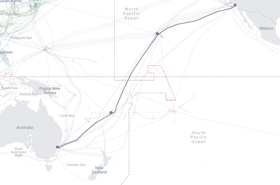The US claims to have detected increased Russian military activity around major subsea cables, and said that the country is more likely to carry out sabotage attacks.
Two officials told CNN of their fears, focused around the 'General Staff Main Directorate for Deep Sea Research' (GUGI) Russian unit.
“We are concerned about heightened Russian naval activity worldwide and that Russia’s decision calculus for damaging US and allied undersea critical infrastructure may be changing,” a US official told CNN.
“Russia is continuing to develop naval capabilities for undersea sabotage mainly [through] GUGI, a closely guarded unit that operates surface vessels, submarines and naval drones.”
Governments and public bodies have long warned of the risk of suspected Russian spy ships and sabotage vessels patrolling subsea cable routes, with the number of patrols increasing since the outbreak of the Ukraine war.
Subsea fiber cables are responsible for nearly all intercontinental data traffic, augmented by a small additional capacity provided by satellites. Other subsea cables carry power, either between countries and regions, or from wind farms to land.
In 2022, the Nord Stream pipelines carrying gas from Russia to Europe were sabotaged. Initially, Russia was thought to be to blame for the incident, but in 2023 the New York Times reported that a pro-Ukrainian group likely carried out the attack - although there was no evidence President Volodymyr Zelensky knew of the operation.
“Any activities that damaged seabed infrastructure including undersea cables especially during periods of heightened tensions risks misunderstandings and misperceptions that could lead to unintended escalation,” the US official told CNN.
“The US would be especially concerned about damage to our or our allies’ critical undersea infrastructure.”
Attacks by the Houthis on ships in the Red Sea caused multiple fiber cables to be cut, leading to lengthy regional outages.







